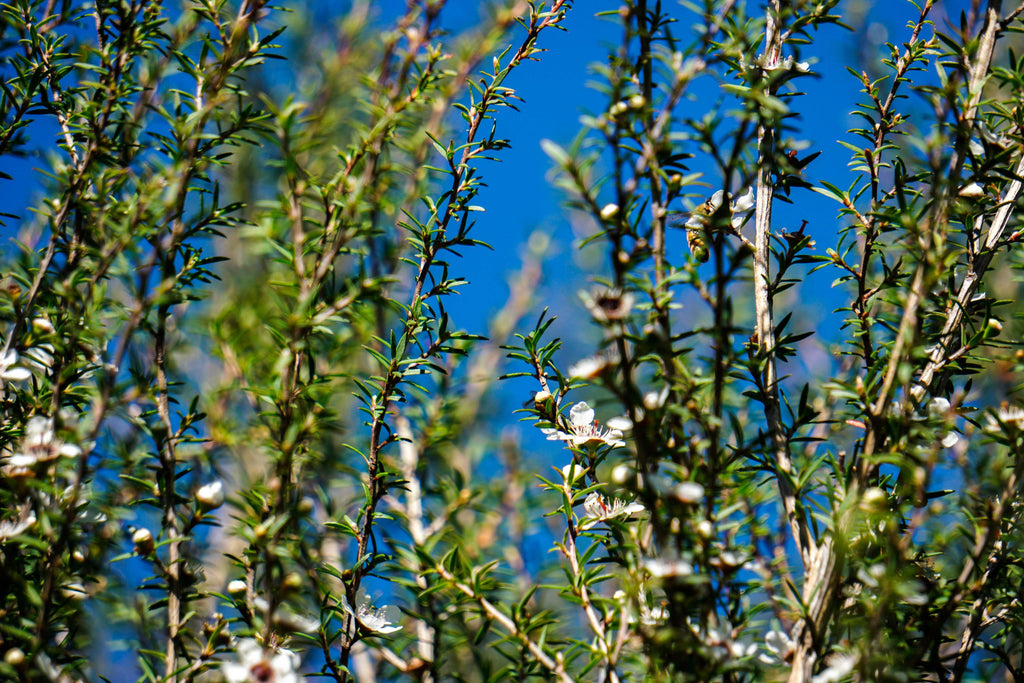Mānuka oil health properties

Backed by science
Mānuka oil has a range of extraordinary health properties. Before European settlers arrived in New Zealand, Māori used various parts of the mānuka and kānuka trees to treat a wide range of conditions. More recent scientific research has uncovered many health benefits that mānuka oil displays.
Here’s a list of the health properties of mānuka oil. To learn more, click on the links to read the books and research studies where these claims are made:
- Analgesic - provides relief from pain.
- Anthelmintic - kills parasites.
- Antibacterial/bactericidal - kills bacteria and prevents them from multiplying (East Cape mānuka oil also kills antibiotic resistant bacteria such as MRSA due to the high triketone content).
- Anti-dandruff - prevents dandruff from occurring.
- Antihistamine - inhibits the effects of histamine.
- Anti-inflammatory - reduces inflammation and swelling.
- Antifungal - kills fungus and prevents it from spreading.
- Antiseptic - prevents infection by destroying microbes.
- Cicatrisant - promotes healing of the skin by forming scar tissue and encouraging new skin cell growth.
- Cytophylactic - helps to maintain healthy skin cells by protecting against lytic agents.
- Deoderant - prevents body odour by killing the bacteria that cause the smells.
- Expectorant - promotes the secretion of mucus and sputum in the airways. Great for helping to clear a blocked throat.
- Herbicidal - East Cape mānuka oil is known to naturally kill weeds thanks to the presence of triketones.
- Immune stimulant - stimulates the immune system.
- Insecticidal - kills insects such as mosquitos, sandflies and spiders.
- Relaxant - promotes relaxation and reduces tension.
- Spasmolytic - relaxes smooth muscle and relieves spasms.
- Vulnerary - helps wounds to heal.
